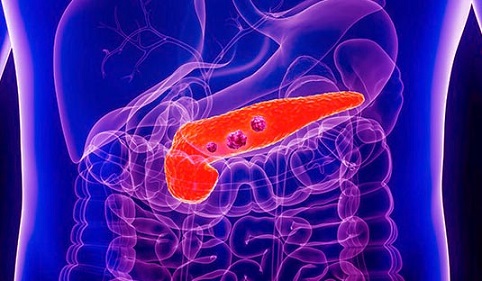Nikhil Prasad Fact checked by:Thailand Medical News Team Jul 27, 2024 8 months, 3 weeks, 3 days, 17 hours, 56 minutes ago
Medical-News: A Deadly Disease in Need of New Treatments
Pancreatic cancer, one of the most lethal forms of cancer, has seen a two-fold increase in incidence worldwide over the past two decades. This aggressive disease often remains undetected until it has reached advanced stages, making effective treatment difficult. The current treatment options, including surgery and chemotherapy, often fall short due to the cancer's resistance mechanisms. This
Medical News report delves into a promising new area of research exploring fungi-derived bioactive compounds as potential therapeutic agents for pancreatic cancer.
 New hope for pancreatic cancer treatment - fungi-derived bioactive compounds
The Study: Uncovering Potential Treatments
New hope for pancreatic cancer treatment - fungi-derived bioactive compounds
The Study: Uncovering Potential Treatments
Researchers from the Institute of Biopathology and Regenerative Medicine (IBIMER) at the University of Granada-Spain have conducted a systematic review of studies from the past decade, focusing on secondary metabolites derived from fungi. The objective was to identify compounds that could offer new hope in the fight against pancreatic cancer.
Key Findings: Promising Compounds from Fungi
The systematic review, encompassing a total of 27 studies, revealed several bioactive compounds from fungi that demonstrated significant antitumor activity in both in vitro and in vivo settings.
Aspergillus Terreus: A Source of Powerful Metabolites
-
Aspulvinone H: This compound selectively inhibits the enzyme GOT1, crucial for cell energy metabolism, leading to increased reactive oxygen species (ROS) stress, apoptosis, and inhibition of cell migration. An in vivo study showed that aspulvinone H significantly inhibited tumor growth in mice.
-Butenolide Derivatives: Compounds such as (+)-3',3'-di-(dimethylallyl)-butyrolactone II and versicolactone B exhibited potent cytotoxicity in pancreatic cancer cells, inducing apoptosis and cell cycle arrest.
Penicillium Species: Anti-Angiogenic and Cytotoxic Agents
-Dicitrinone G: Derived from Penicillium sp., this compound inhibited angiogenesis and tumor growth in pancreatic cancer models, showing efficacy comparable to standard chemotherapy agents.
-Skyrin and Dicatenarin: These compounds demonstrated significant antitumor activity through the induction of ROS-mediated apoptosis and inhibition of clonogenicity in pancreatic cancer cells.
Mechanisms of Action: How Fungi-Derived Compounds Work
The fungi-derived compounds exert their effects through various mechanisms, including:
-Induction of Apoptosis: Many of the identified compounds trigger cell death through apoptosis, a process of programmed cell death that eliminates cancer cells without damaging surrounding healthy tissue.&
lt;br />
-Cell Cycle Arrest: By halting the cell cycle at specific phases, these compounds prevent cancer cells from proliferating.
-Inhibition of Angiogenesis: Some compounds reduce the formation of new blood vessels, which tumors need for growth and metastasis.
-Regulation of Molecular Pathways: Compounds such as aspulvinone H interfere with the metabolic pathways crucial for cancer cell survival.
Clinical Trials and Future Prospects
Several fungi-derived compounds are already being tested in clinical trials, showing promising results:
-CT-2106: A conjugate derived from camptothecin, tested in combination with 5-FU and folic acid for colorectal cancer.
-TNP-470: An antiangiogenic agent derived from fumagillin, tested for various cancers including locally advanced pancreatic cancer.
-CKD-732: A metabolite with antiangiogenic activity, tested in combination with chemotherapy for metastatic colorectal cancer.
-Irofulven: An illudin S analogue, tested for pancreatic, ovarian, and liver cancers.
These clinical trials highlight the potential of fungi-derived compounds to enhance current cancer treatments and offer new therapeutic options.
Conclusion: A Step Towards Better Treatments
The findings from this systematic review underscore the significant potential of fungi-derived bioactive compounds as new therapeutic agents for pancreatic cancer. By targeting multiple pathways and mechanisms, these compounds could provide more effective and less toxic treatment options.
The study findings were published in the peer-reviewed journal: Microorganisms.
https://www.mdpi.com/2076-2607/12/8/1527
For the latest on Pancreatic Cancer, keep on logging to Thailand
Medical News.
Read Also:
https://www.thailandmedical.news/news/aronia-berry-extract-overcomes-pancreatic-cancer-drug-resistance-via-myd88-nf-kb-p-glycoprotein-modulation
https://www.thailandmedical.news/news/-metformin-a-surprising-new-hope-for-pancreatic-tumor-treatment
